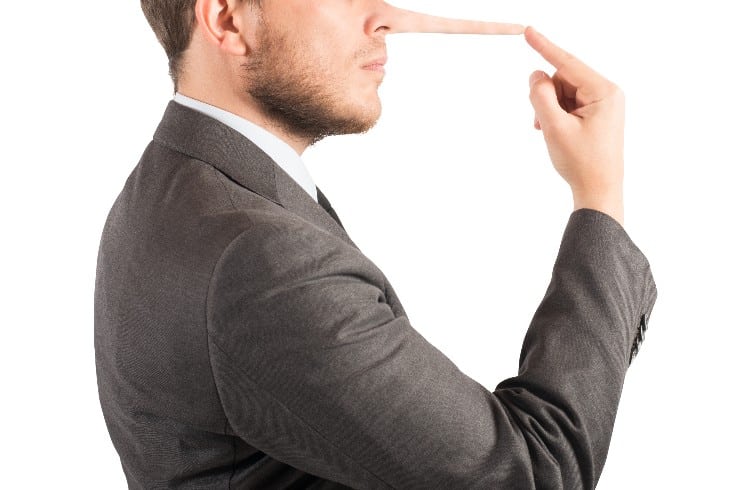Can You Remove a Defamatory Statement Labeling a Company as 'Black'?

For business owners, having their company labeled as a “black company” can be a significant disadvantage, particularly in terms of recruitment. Even if you are running your business in compliance with labor laws and other regulations, if a former employee who left due to issues such as interpersonal relationships or job performance capabilities writes on the internet that your company is a “black company”, it could potentially have a negative impact on future recruitment activities.
Is it possible to remove the label of a “black company”?
https://monolith.law/reputation/delete-google-search[ja]
To understand this issue, it is necessary to consider the requirements for defamation and to examine arguments and evidence according to the specific case, the way it is described, and the internal situation of the company.
What Constitutes Defamation?
In simple terms, defamation occurs when:
- A specific fact is stated
- That statement is not true
The precise requirements are explained in detail in the article below.
https://monolith.law/reputation/defamation[ja]
What “Specific Facts” Mean
One of the requirements for defamation to be established is the “indication of facts”. The term “facts” here differs slightly from its everyday usage. “Facts” refer to “specific matters”, or more technically, “matters that can be determined as true or false by evidence”. For example, saying “The ramen at this shop is worse than the one across the street” is merely an opinion based on personal taste. It’s not a matter of presenting evidence to decide which is better. However, saying “This shop’s ramen contains a large amount of chemical seasoning” is a matter that can be determined as true or false by disclosing evidence such as the recipe. In this distinction, defamation can only be established for statements like the latter.
However, this distinction, namely, whether a written statement is a “matter that can be determined as true or false by evidence”, is not always clear. There are many words in the world that belong to the intermediate area between “clearly factual” and “clearly not factual”. “Black company” (Japanese term for a company with poor working conditions) is a typical example. It could be closer to “the food tastes bad” or “the food contains a large amount of chemical seasoning”.
Precise Definition of Words Using Dictionaries, etc.
In such cases, you would prove the definition of the word as “this word means this (therefore it is a ‘fact’)” by “evidence”. In this regard, newspapers and encyclopedias from major newspaper companies and publishing companies can be considered persuasive evidence.
For instance, in the case of “black company”, Asahi Shimbun, a major newspaper company, has defined “black company” as “a company that forces employees to work under illegal or malicious working conditions”. Shogakukan, a major publishing company, has also defined it in the “Nipponica Encyclopedia” as “a company that forces employees to work in highly illegal ways, such as imposing excessive quotas and overtime, and where mental bullying, harassment, and unpaid wages are commonplace”. With this definition, “black company” can be said to be a matter that can be judged as applicable or not by presenting concrete evidence such as the legality of working conditions, the presence or absence of quotas, the amount of overtime, and the payment status of wages. In fact, there are court cases that have indicated that “black company” is a “matter that can be determined as existing or not by evidence, and therefore is an indication of fact”.
The fact that the plaintiff company is a black company (…) can be determined as existing or not by evidence, and therefore is an indication of fact, and also, in light of the definition of a black company, it is an indication of a fact that defames the credit of the plaintiff company.
Tokyo District Court, March 25, 2013 (Heisei 25)
This court case judged that the statement “it’s even more of a black company” is an indication of a specific fact, considering the definition of “black company”.
Claims Based on the “Context” of Specific Cases
However, this is ultimately a matter of specific cases. It is necessary to examine the specific statements in the case at hand and consider whether the word “black company” is used in the context of simply meaning “a company you should not join”, or whether it is used in a way that suggests violations of labor laws. And it doesn’t necessarily have to be a specific statement that “violations of labor laws are taking place”.
Even if a definitive statement is not made, if it gives the impression of being true based on the normal attention and reading of a general reader, defamation cannot be denied.
Tokyo District Court, October 19, 2009 (Heisei 21)
There are also court cases like this, and ultimately, it is possible to argue that “if the word ‘black company’ is used in a context that gives the impression of a company with violations of labor laws when read normally, it is equivalent to writing a fact such as violations of labor laws”. For example, there is also a judgment like the following.
Considering that the title of the thread where the article in question is posted uses the name “black company”, and that the name “black company” is generally perceived as an expression of harsh working conditions and poor working environment, and that the description of the website in question states that “the turnover rate is high”, and that there are descriptions about specific working conditions and working environment such as “no lunch break” and “I’m doing over 70 hours of overtime a month but when I looked at the pay slip, it was only about 60 hours” in other posts in the thread about other companies (omitted), a normal reader who reads the expression “black company” in the thread in question can fully understand the meaning of “black company” as “a company that forces harsh labor or working environment”.
Tokyo District Court, December 22, 2016 (Heisei 28)
This judgment,
- There were criticisms of other companies regarding break times and overtime on the same site
- On the same site, the plaintiff was referred to as a “black company”
is based on the fact that “in the context, it is equivalent to saying that there are violations of labor laws, etc. regarding the plaintiff”.
Cases That Become Issues of “Opinion-Type Defamation”
The expression “black company” can be said to be “stating specific facts in the context, etc.” in some cases, but not in others. In such cases, it becomes an issue of “opinion-type defamation”, which is a type of defamation. This point is explained in detail in the following article.
https://monolith.law/reputation/expressions-and-defamation[ja]
What Does “Not True” Mean?

Even if specific matters are stated, if those matters are true, defamation is not established in most cases. Therefore, if you are on the side claiming that it is “illegal” to have been labeled as a “black company”, you need to assert and prove that “our company is not a black company”.
So, what kind of evidence can you present to say “our company is not a black company”? This ultimately depends on the definition of a “black company”. In accordance with the above definition, you will argue that “our company does not fall under such a definition”. For example, the argument would be as follows.
Examples of Claims that a Black Company is Defamatory
In actual provisional dispositions and court proceedings, you would make claims like the following.
The post in question describes the plaintiff as a “black company”. Here, a “black company” means “a company that forces employees to work in highly illegal ways, such as imposing excessive quotas and overtime work, and where mental bullying, harassment, and non-payment of wages are commonplace” (Exhibit 1). Therefore, whether the plaintiff is a black company or not is a matter that can be determined by evidence. In fact, there are court cases that have made similar judgments (Exhibit 2).
Therefore, the fact that the plaintiff is a black company, as defined above, clearly lowers the plaintiff’s social evaluation.
However, the plaintiff does not force employees to work in highly illegal ways, such as imposing excessive quotas and overtime work, and there is no mental bullying, harassment, or non-payment of wages. On this point, the plaintiff’s wage system does not include promotions based on quotas (Exhibit 3), the plaintiff has built an internal system that prevents overtime work (Exhibit 4), and there is no violation of the Labor Standards Act in terms of overtime work (Exhibit 5). In addition, the plaintiff has set up a dedicated hotline for consultations within the company to prevent mental bullying and harassment (Exhibit 6), there were no consultations on these matters at least last year (Exhibit 7), and wages are being paid appropriately (Exhibit 8).
Therefore, there is no truth to the matter, and the post in question is illegal as it defames the plaintiff’s reputation.
Detailed Evidence is Necessary for Trials and Provisional Dispositions
In addition to the above claims, you need to prepare:
- A copy of the dictionary (Exhibit 1)
- Past court judgments (Exhibit 2)
- Wage regulations (Exhibit 3)
- An overview of the system in place (Exhibit 4)
- Employee time cards (Exhibit 5)
- Instructions for the dedicated hotline for consultations distributed to employees (Exhibit 6)
- Response records of the dedicated hotline for consultations (Exhibit 7)
- Documents related to wage payments (Exhibit 8)
This is why you need to prepare.
In this way, in trials and provisional dispositions, and in out-of-court negotiations conducted with these in mind, it is necessary to have specific claims of fact and evidence to support them for all matters.
https://monolith.law/reputation/provisional-disposition[ja]
Proof of Falsehood and the “Devil’s Proof”
Generally speaking, proving that something is “not true” is challenging. This is because it ultimately involves proving the “non-existence” of a matter, which is akin to the so-called “Devil’s Proof”.
However, from a legal perspective, the “Devil’s Proof” is by no means “impossible”.
Examples of Asserting and Proving the “Devil’s Proof”
For instance, let’s consider a case where a salaried worker is named and accused of being arrested for molestation last year, and he wants to assert that “such a fact does not exist”. Providing evidence that “a person has not been arrested” is quite difficult. However, if that person did not take a single day off from work last year, it is conceivable to submit the attendance record proving that he received a “perfect attendance award”. The argument is, “If there was a fact that he was arrested for molestation, he would not have been able to go to work during that period. However, he has a perfect attendance record, which means that such a fact does not exist”.
In this way, even the “Devil’s Proof”, such as proving that “a person has not been arrested”, is not impossible from a legal perspective. This is because all you need to do is think of a fact that contradicts the existence of that fact and present evidence of it. “If there was a fact that he was arrested for molestation, the fact that he has a perfect attendance record contradicts it”.
Asserting and Proving that a Company is Not a “Black Company”
The same applies to the case of a “black company”. “A black company is defined specifically as such, but if our company were such a company, such a fact should not exist. Since such a fact exists with evidence, our company is not a black company”. All you need to do is prepare a logical argument and the evidence to support it.
If you carefully prepare such arguments and evidence, it becomes possible to assert that “it is defamation”, and you can request the deletion of the post or the disclosure of the poster’s IP address and personal information.
Our firm has handled a case where we received a judgment that a post stating “the inside is also black” was “illegal”. This case is introduced in the following article.
https://monolith.law/reputation/illegal-posting-black-companies-in5ch[ja]
Among these, identifying the poster is particularly complex. We explain this in detail in the following article.
Category: Internet





















